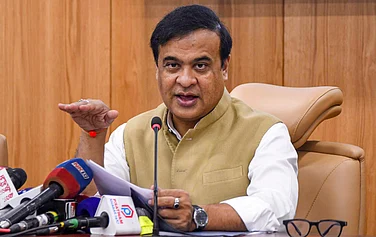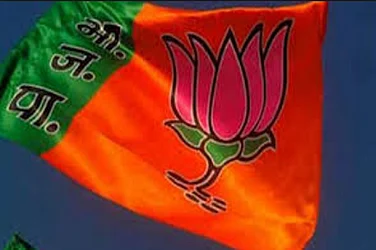Airport Aaraattu
In Thiruvananthapuram on October 28th, the international airport ceased activity at 4pm. It closed its runways, rescheduled flights and deployed CISF personnel as guards, as a procession from the Sree Padmanabhaswamy temple passed through it, led by members of the former Travancore royal family carrying unsheathed swords and shields, on its way to immerse three of the temple’s idols in the sea at Shankhumukham beach (a ritual bath or ‘aaraattu’). Regular activity resumed only at 9 pm, after the procession had made its way back through the same route, with its way lit by a number of people carrying ‘theevettis’ (traditional fire lamps). This procession, and the attendant closure of the airport, occurs twice a year, following the ‘Painkuni’ festival and the ‘Alpashi’ festival (it is the latter that has just concluded), and this has been the case for many decades.

Bullock Carts Asked to Move
The government of Andhra Pradesh has requested that a moving bullock cart be developed. Official visitors to the state are often presented with colourful wooden miniature bullock carts made by traditional Kondappalli Bommalu craftsmen. The government’s call for new designs is an attempt to help preserve the craft and support the artisans, and comes amid fears caused by competition from cheaper Chinese products, a rising preference for moving toys and the fact that fewer families practise the craft. Indeed, there are only five remaining families in Kondappalli (in Krishna district) who make the bullock cart, among a larger community of artisans (roughly 56 families in total) who focus on various other products (for example, the five families who make the dancing Thanjavur doll). These families are said to have descended from Rajasthani migrants who settled in the area 400 years ago.

Choo-choo Cheetah
It’s a map…it’s a train…it’s a cheetah on an engine. Chakradhar Aalla, 27, has won a competition to design the official logo for the bullet train project on his 31st attempt, following unsuccessful entries in earlier contests. Aalla, a second-year student at the National Institute of Design, Ahmedabad, was reported as saying that the cheetah design represented speed and reliability, and if you look carefully at the logo, you will see that it looks like a railway map, with the dots along the top standing for stations. The logo was selected from among 100 entries by a three-member panel comprising a member of NITI Aayog, an official representing the National High Speed Rail Corporation Ltd (NHSRCL) and architect and painter Satish Gujral. It will now be featured on all relevant documents, according to rail officials.

Comfort on the Campaign Trail
The ultimate campaign vehicle: a custom-built coach, built by a specialist TN company on the Ashok Leyland bus chassis, with a bedroom, bathroom, mini-kitchen, conference cubicle, AC, and a podium with a hydraulic lift to address the public. The bill has reportedly come to about Rs 1 crore, but it’s no frivolous luxury from the perspective of JD(S) state president H.D. Kumaraswamy as he prepares to campaign for the Karnataka assembly polls, slated for May next year. He will hit the campaign trail on November 1 after a month’s rest following heart surgery, and these facilities are designed to help him campaign while taking care of his fragile health. Kumaraswamy is an essential asset for his party, being a former CM and the only star campaigner it can field, as his father and former prime minister, H.D. Deve Gowda, is too old to campaign widely.

Pleasure Most Fowl
It’s black as sin all over, and they whisper that it’s an aphrodisiac. The Kadaknath chicken (which is completely black—flesh, bones, feathers and all), which comes from Madhya Pradesh’s Alirajpur, Jhabua and Dhar districts, has been pleasuring the palates of locals for a while—and that is how many tribal families make a living. The latter’s womenfolk, who benefited from a government programme aimed at saving the breed from extinction, run Kadaknath breeding centres for the ‘Kaali Maasi’. Bhopal gourmands need not feel deprived, as the fowl will soon be available in the city.
Bird Killer from Brazil
Section 144 has been imposed in Jatinga, a tribal village in Assam where tourists come to witness the so-called bird suicide mystery—the phenomenon of birds flocking in large numbers to the bright village lights standing out in the winter fog. The birds are now under threat from people who are apparently being paid to kill them. Tuhin Langthasa, Assistant Conservator of Forest of the Haflong range said that a Brazilian national, who offered to pay boys to catch birds and tried to coerce forest staff into helping him by pretending to have official clearance, is suspected to be involved.
A Bittersweet Homecoming
In Dimapur, Nagaland, a 15-year-old girl named Anita eloped with a soldier posted there in 1967. She would not see her family for 50 years. The couple settled in Lehragaga, Punjab, and Anita would spend years trying to get in touch with her loved ones, all in vain. Her sorrow was noticed by her neighbours’ daughter, Preeti Goyal, who promised to help Anita reunite with her family. That was nine years ago. Preeti became an IAS officer in 2013 and started trying to locate the family in 2014. She succeeded three months ago. Anita, whose husband died six months ago, went home in September, facing the bitter reality that her parents and four of her eight brothers had died, but was given a warm welcome.

Shahbaz To The Fore
The possible rift in the Sharif family over choosing the next prime minister seems to have been settled. Shahbaz Sharif is likely to be the choice of the Pakistan Muslim League (Nawaz) if the party wins the general elections in the country scheduled for next year.
However, there is a caveat: a lot will depend on how people react to this important issue after the winner of Pakistan’s next parliamentary polls is declared.
This technically means that Nawaz Sharif could still be a contender, though it is another matter whether legally he is qualified to be in that coveted post following the Pakistan Supreme Court’s ruling in the Panama Papers case.
After Nawaz Sharif’s resignation from the prime minister’s post early this year following the apex court’s decision, the younger Sharif, who is currently the chief minister of Punjab, was scheduled to step into his elder brother’s shoes. But a last-minute decision by Nawaz forced Shahbaz to remain in Punjab and made Shahid Khaqan Abbasi, a party loyalist, the PM.
Predictably, the decision led to a lot of heartburn within the Sharif family and Shahbaz’s wife, writer Tehmina Durrani, publicly expressed her anger at the elder Sharif for denying her husband the prime minister’s post.
The decision on the next premier was taken at a meeting in London where, apart from the Sharif brothers, other senior members of the PML(N), including PM Abbasi, were present. The meeting discussed the party’s strategy, especially Nawaz’s possible return to the country, to face the next hearing of the court and decide on how the party would deal with the situation.
As part of this strategy, a survey conducted by a US based organisation on who is likely to be the best prime minister for Pakistan was also discussed. The survey found that over 60 per cent of the people found Shahbaz to be the most suitable candidate. This of course, was to deal with a situation where Nawaz Sharif is ruled out to return to the PM’s post.
In attempt to play down the difference within the family, Nawaz has argued that Shahbaz was not made the prime minister when he stepped down to ensure that the party’s main base in Punjab remains intact. The possibility of a number of aspirants for the chief minister’s post may have split the party before the election.
Does this mean that the younger Sharif will finally step out of Nawaz’s shadow?
Illustrations by Sajith Kumar


























